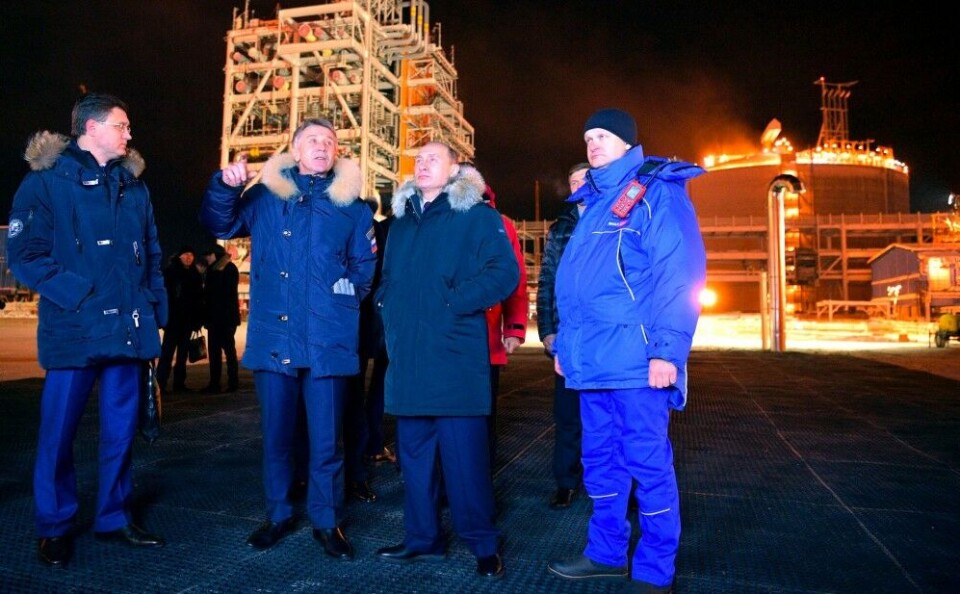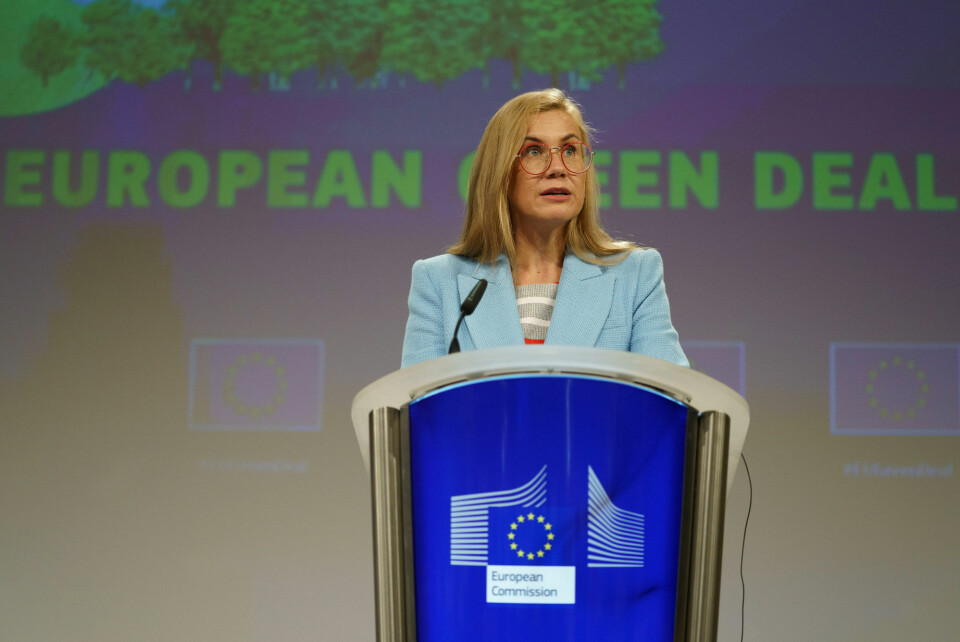
As European power prices rocket, Moscow mocks EU over its energy transition
The Kremlin triumphs as Russian natural gas is sold in the European market at record-high prices. A top Russian energy leader tells President Putin that the European energy shift is bringing the continent to "a kind of stone age."
Over the past decade, European energy prices have dropped steadily. But in 2021, the situation changed dramatically with a huge price increase in only few months. In the first nine months of the year electricity wholesale prices surged by more than 200 percent. And the prices continued sharply upwards in October.
The major rise comes as the world economy has started to rebound after the pandemic, EU Energy Commissioner Kadri Simson explained in a speech to the European Parliament plenary session this week.
At the same time, there has been less wind than usual in Western Europe and also less hydropower.

And in addition to that, gas supply has tightened.
The situation in Europe was key subject in President Putin’s meeting with top energy officials and company representatives on Wednesday 6th October. According to the president, European countries have made grave mistakes when trying to rapidly turn from coal and nuclear power and towards wind power that depends on weather conditions. And he argues that Europe should not have given priority to spot trade in place of long term contracts on natural gas.
“I would like to stress that the situation in the European energy market is another striking example of how hasty and politically coloured steps are unacceptable in any field, and especially in issues of energy security […],” Putin underlined.
He had not much good to say about Brussels, which he last time visited in 2014. “I remember the discussions in the European Commission […] It was very difficult to talk with the so-called experts because they act with this well-known level of snobbishness, where their opinion is the only exclusively right one and they do not want to listen to anybody else.”
Among the participants in this week’s digital meeting was Boris Kovalchuk, General Director of energy company Inter. According to Kovalchuk, it is an “amusing” fact that Germany now has ten time higher energy prices than Russia and at the same time this year has 27 percent of its energy balance from coal while Russia only has 13 percent from coal.
“It is strange to fight for carbon neutrality and at the same time have such a energy price, even electricity limitations and a share of coal that is two times higher than in the Russian Federation,” Kovalchuk said.
According to the company leader, German authorities are now distributing information among its citizens on how to cope in wintertime without light and heating. It looks like “a kind of stone age,” Kovalchuk argues.
Putin in the meeting expressed his strong support with Kovalchuk, and added that “the Europeans are acting at our expense, the expense of the Russian Federation,” hinting at the dependence of Russian gas.
However, the spike in energy prices and major dependence on Russian natural gas is unlikely to make the EU change policy.
In her meeting with the European Parliament, Commissioner Simson underlined that “the Green Deal provides the only lasting solution to Europe’s energy challenge: more renewables and improved energy efficiency.”
“The best response to the price challenge is to progress faster towards our target goal of 65% of renewable electricity by 2030,” she said and added that “the current price hike has little to do with our climate policies and much to do with our dependence on imported fossil fuels and their volatile prices.”
According to the Commissioner, a reform of the gas market is to be presented by the end of the year. That will include issues around storage and security of supply, she said.
















